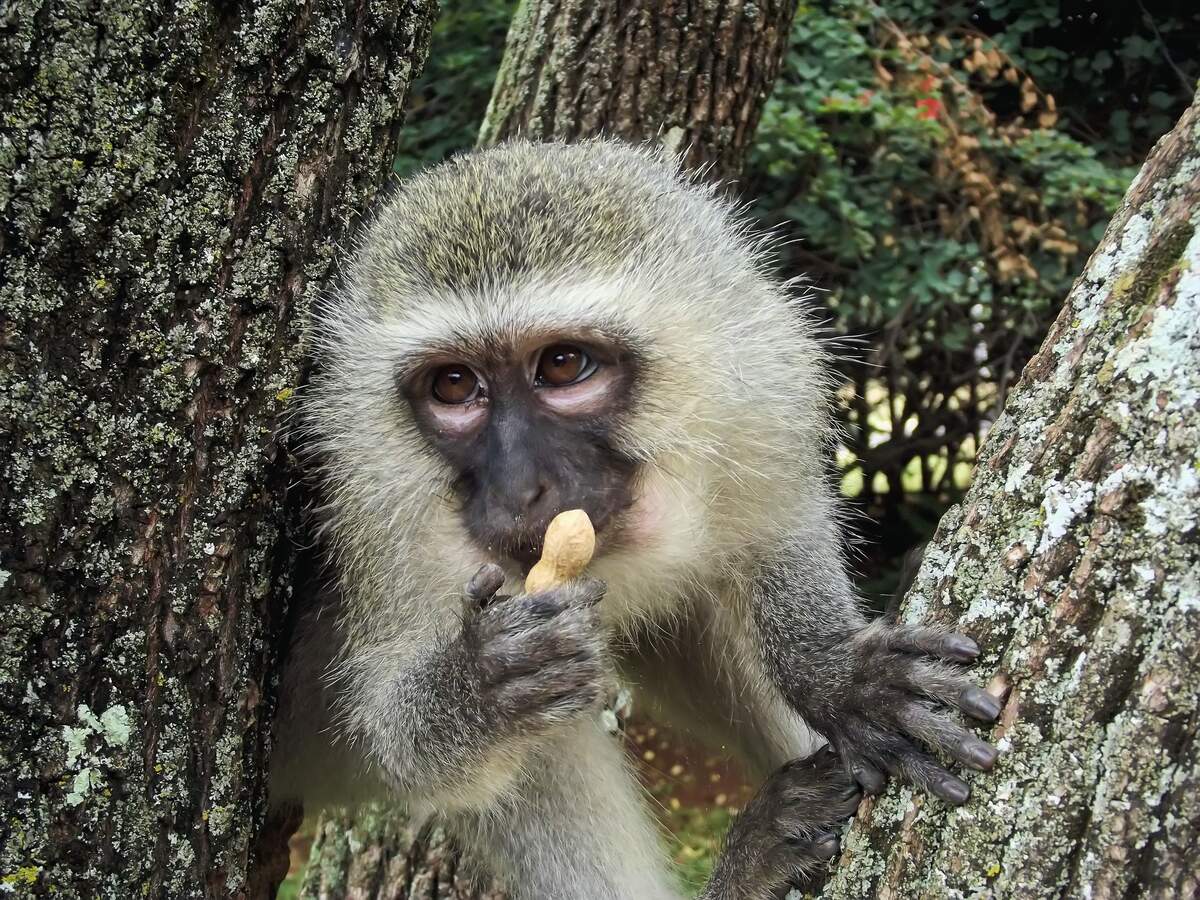

Take a Monkey to Lunch Day
While this may seem like a fun holiday about taking a pet monkey out for a pizza or a cheeseburger, that is really not what the day is about. Take a Monkey to Lunch Day commemorates the Scopes Monkey Trial, where John Thomas Scopes, a science teacher from Dayton, Tennessee, was convicted of teaching evolution in a public school, which violated Tennessee law. The Scopes Trial is one of the most famous trials in US history, and the essential conflict at the heart of the case—the conflict between science and religion—is still hotly debated today.
The theory of evolution was still controversial in the early twentieth century, and in March of 1925, the Tennessee legislature passed a law, known as the Butler Act, against the teaching of anything that contradicted creationism in the Bible, such as by saying humans descended from animals. Any violation of the law would be considered a misdemeanor. After hearing that the American Civil Liberties Union (ACLU) was offering to help anyone who challenged the law, Dayton businessman George Rappleyea met with the school superintendent and a lawyer, and they decided they'd take up the ACLU's proposition. Their goal was for publicity for their town; they wanted newspapers to write about Dayton, and they want its profile raised. They recruited John Scopes, who admitted he had used materials that had included content about evolution. Scopes was then charged with violating the Butler Act.
Many in the Tennessee press charged that everything was being done for publicity, which was true to a large extent. But there were other issues involved, beyond people wanting their town to be on the map. Some wanted the law to be done away with and thought this would be a way to challenge its constitutionality. Some wanted the case to proceed so that they could advocate for the theory of evolution. Still others thought the case would help raise the status of the ACLU.
William Jennings Bryan, who had thrice been the Democratic nominee for President, was also a Christian fundamentalist and volunteered to help the prosecution. The ACLU organized the defense, and famed attorney Clarence Darrow—most known for the Leopold and Loeb case—joined them, after finding out this would mean he would get to face William Jennings Bryan. He relished the chance to take on the fundamentalist interpretation of Christianity and did not ask for any pay. Even before the trial began, the two rivals began attacking each other in the press. It got to the point that the ACLU actually wanted to remove Darrow from the case, fearing things would get out of hand, but they weren't successful in his removal.
As the trial began at the Rhea County Courthouse on July 10, spectators, reporters, and preachers with revival tents arrived. It began to look like a carnival: Exhibits featured chimpanzees; one was even dressed up in a suit and danced on the courthouse lawn. A man of short stature and distinct facial features was labeled as the "missing link" between humans and their ancestors and was on display. Vendors cashed in by selling Bibles, toy monkeys, and refreshments.
Judge John Raulston opened the trial with a long prayer, which did not seem to bode well for the defense. He also said experts on evolution couldn't come in and give scientific evidence, as the law wasn't on trial, Scopes was. This undercut the defense's goal to prove the law unconstitutional. On the second day, the judge moved the trial to the courthouse lawn, as the building was swelling with people, and he thought the floor might collapse.
The prosecution cited precedents of education standards, said the Butler Act was one of those standards, and said it should thus be upheld. Darrow said the Butler Act was illegal because it favored one religious view. Eventually, Darrow called Bryan to the stand as a witness and sought to discredit the literal interpretation of the Bible. Bryan was ridiculed, after making ignorant and contradictory statements.
On July 21, on what we now celebrate as Take a Monkey to Lunch Day, Clarence Darrow asked for a guilty verdict for his own client. This was done with the hopes that the case could be appealed, and to prevent Bryan from giving his closing speech, which he had long been preparing for. The jury deliberated for less than ten minutes and found Scopes guilty. Judge Raulston ordered him to pay a $100 fine, the minimum that the law required. Bryan had won the case, but he had been publicly humiliated, and his fundamentalist beliefs had been undercut.
Much can be said about the aftermath of the trial. Bryan intended to use his closing speech—which he was prevented from delivering during the trial—at a series of rallies. But, he ended up dying five days after the case ended. Scopes went on to study geology at the University of Chicago graduate school and later became a petroleum engineer. Being upheld, the Butler Act was not repealed until 1967. Soon after, similar laws were passed in Mississippi, and Texas banned evolution from high school textbooks. In 1927, the Tennessee Supreme Court overturned Scopes' guilty verdict on a technicality but left the larger issues unresolved. It wasn't until 1968, when the U.S. Supreme court overturned a similar Arkansas law, saying that it violated the First Amendment, that the argument that had underpinned the Tennessee law was found unconstitutional.
The importance of the Scopes case is still evident in the twenty-first century, in that similar court cases dealing with science and evolution, and creationism and intelligent design, continue to be decided. For example, intelligent design was ruled against in Kitzmiller v. Dover Area School District in 2005.
How to Observe Take a Monkey to Lunch Day
Why is a day about the Scopes Monkey Trial called Take a Monkey to Lunch Day? Could it be because people bought and ate hot dogs while they watched chimpanzees on display outside of the Rhea County Courthouse during the trial? This very well could be, meaning that the best way to celebrate the day probably is to have lunch with a chimpanzee. Since it is unlikely that you will actually be able to do this, there are some other ways you can mark the day. You could read a book about the case, such as Summer for the Gods: The Scopes Trial and America's Continuing Debate Over Science and Religion by Edward J. Larson, or journalist H.L. Mencken's account of the trial, which was compiled in a posthumous collection. How about reading a book on Clarence Darrow or William Jennings Bryan? You could also read Darwin's On the Origin of the Species or another book on evolution, or the Biblical account of creation. If you'd rather not read, watch Stanley Kramer's Inherit the Wind, or a documentary about the trial. Another great way to commemorate the day is to visit The Scopes Trial Museum & Rhea County Courthouse.





















